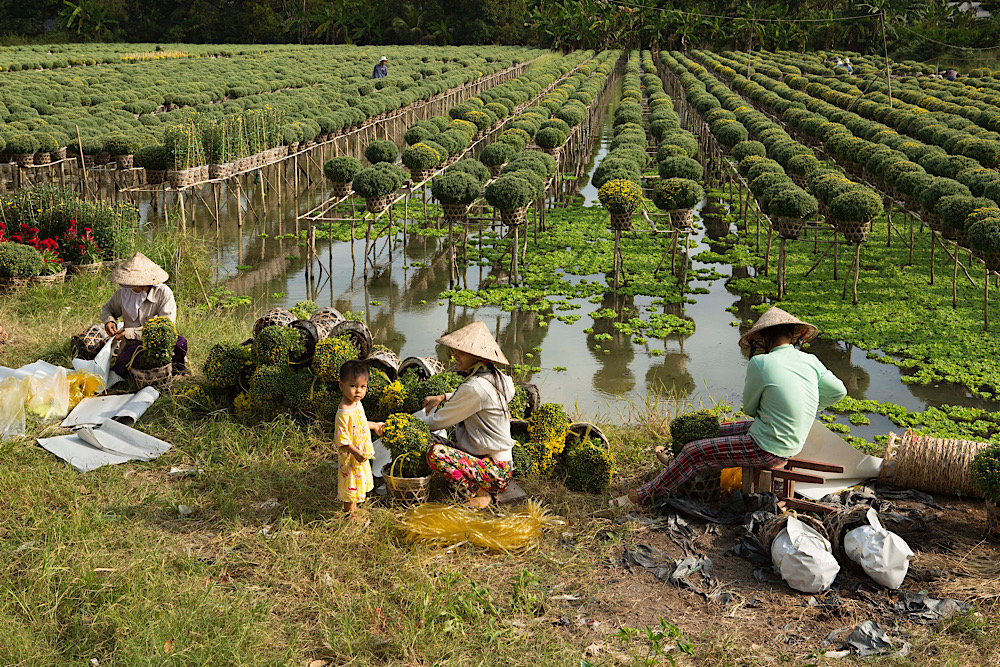Vietnam, salinization of the Mekong drowns crops. Millions at risk of hunger
Human exploitation drives salinity and erodes the watercourse. Turbine action and the multiplication of dams for electricity production are affecting it. Action Aid Vietnam: the population is losing 'many of its livelihoods'. Local communities are planning reforestation with mangroves.
Ho Chi Minh City (AsiaNews) - The Mekong Delta, a river almost 5,000 km long, is the main waterway in South East Asia. Recently, however, it has been seeing increasing erosion and salinity due to a number of concomitant causes, with human initiatives to exploit the water playing a decisive role.
The situation is jeopardising the prospects of millions of inhabitants, and Vietnam is the most affected country in the inner basin: both because it is the last of the six touched by the river and because its southernmost regions are those with the highest human and productive density.
Higher tides are increasing salinity of the waters and the sterility of the soils, combined with offshore turbines that use the winds to increase the availability of electricity in coastal areas. Then there is the reduced water flow resulting from the increasing number of hydroelectric plants along the upper and middle sections of the great river.
The consequences are an increasing intrusion of seawater into the delta channels and an accelerated erosion of the coastline.
Two colliding needs are threatening future agricultural production in a country among the first in South-East Asia in terms of productive capacity and the third in terms of population: the need for more energy at the cost of a dramatic change in the river ecosystem, and of maintaining high production levels for agriculture and fishing, ahead of changes that are partly spontaneous and partly due to human action.
"Due to climate change and the wrong way of using the Mekong's resources, people have lost many of their livelihoods. They are losing where to shelter, they are losing their water, and millions of individuals have to move to other provinces to find work,' reports Hoang Phuong Thao, regional director of Action Aid Vietnam, an organisation committed to fighting poverty.
In an attempt to limit erosion, local communities in some areas are planning reforestation with mangroves, a natural way of tackling the problem. However, in the face of the increasing salinity of fresh water, many farmers have joined together to start initiatives that have replaced shrimp farming with agricultural products, starting with rice.







.png)










